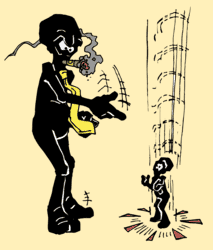 Kenyans experienced independence in 1963, but not all enjoyed the rights and benefits of citizenship; they have witnessed economic growth, but have not necessarily been able to find work; they have participated in development projects that have not necessarily delivered improved standards of living; and they have voted in elections without experiencing democracy, according to Daniel Branch in his book Kenya: Between Hope and Despair, 1963-2011.
Kenyans experienced independence in 1963, but not all enjoyed the rights and benefits of citizenship; they have witnessed economic growth, but have not necessarily been able to find work; they have participated in development projects that have not necessarily delivered improved standards of living; and they have voted in elections without experiencing democracy, according to Daniel Branch in his book Kenya: Between Hope and Despair, 1963-2011.
The book explores Kenyan politics from the time of the first president Kenyatta, through the time of the second president Moi, up to the present time of the third president Kibaki. In the early days the struggle was between the political elite and those like Oginga Odinga who wanted to redistribute the wealth. After a while the struggle was simply between different factions in the political elite who wanted to seize power and feather their own nests.
Remarkably, the author does not hesitate to detail instances of corruption and criminal conduct and name names, given the propensity of the Kenyan elite to sue for defamation. Former National Security Minister Chris Murungaru is currently suing KTN for defamation over the allegation that he was a drug kingpin. Former Minister of Trade and Industry Nicholas Biwott was awarded $750,000 for defamation over the allegation that he murdered Robert Ouko. President Kibaki has publicly threatened defamation proceedings against anyone who claims he is a polygamist. All of these allegations and many more appear in the book. Perhaps the author has greater confidence in the independence of the current judiciary.
Although the book’s title suggests that Kenya fluctuates between hope and despair, the abiding impression gained by the reader is more on the side of despair. If the author is correct in suggesting that the Moi regime had a deliberate policy of provoking violence in order to justify the repressive measures taken to stifle dissent and maintain its grip on power, then that helps to explain the country’s decline in GDP per capita between 1980 and 2002.
The book focuses on politics to the exclusion of other aspects of Kenya’s recent history such as poverty, health, culture and significant non-political events. Nevertheless it provides a very useful and uncensored overview of how the country’s governance has reached its current condition.